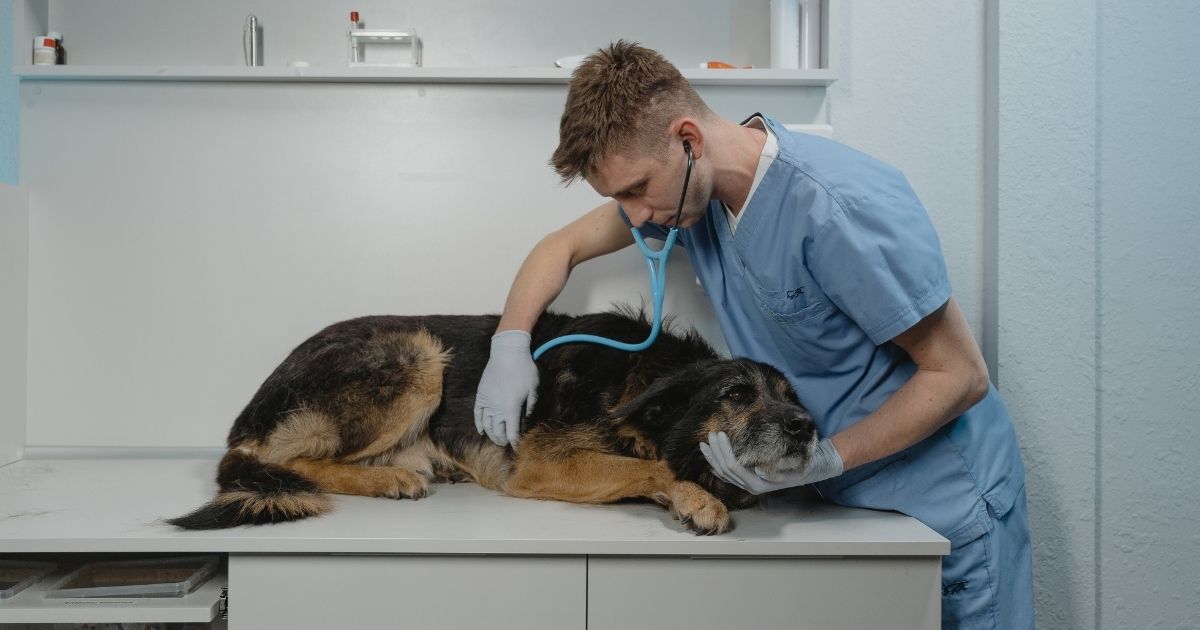
National Canine Lymphoma Awareness Day
November 07, 2019November 7th is National Canine Lymphoma Awareness Day. Lymphoma is a deadly disease, and Terry Simons created National Canine Lymphoma Awareness Day after his dog Reveille died from this horrible disease.
Terry Simons is a highly regarded dog agility trainer who founded CLEAR (Canine Lymphoma Education Awareness and Research along with National Canine Lymphoma Awareness Day. During the year that Reveille lived with the disease, Simons went in search of information regarding treatments that might prolong her life.
CLEAR is a non-profit organization that is striving through clinical research to create a better tomorrow for our furry friends that are facing canine lymphoma diagnosis. CLEAR offers pet parents a better understanding of the disease their dog is fighting and the choices available to help their fur-baby.
What is Canine Lymphoma
Although we rarely see signs of this deadly cancer, lymphoma is one of the most common canine cancers. 80% of dogs diagnosed with lymphoma do not show symptoms of the disease.
Lymphoma refers to a group of about 30 different cancers that originate in the lymphocytes – a type of white blood cell that helps fight infection. It is found throughout the body but especially in organs that support the functioning of the immune system, such as the spleen, bone marrow, and lymph nodes. Consequently, lymphoma tends to target those areas, although it can affect any organ in the body.
Different Types of Canine Lymphoma
There are four main types of lymphoma found in dogs. They are extranodal lymphoma, mediastinal lymphoma, alimentary lymphoma, and multicentric lymphoma. Multicentric lymphoma is the most common form, at approximately 80 percent of all lymphoma cases. Each type of lymphoma has its own characteristics, including how aggressive the disease is and the expected survival rate. Lymphoma typically progresses very rapidly, and the average survival rate for untreated dogs after a diagnosis is only four to six weeks.
Lymphoma Symptoms
 Some signs of cancer that pet parents should be aware of include:
Some signs of cancer that pet parents should be aware of include:
- Swelling of the lymph nodes that continues to enlarge (this can happen in the dog’s neck, chest, and behind the knees)
- Red, irritated patches which become ulcerated
- loss of weight, vomiting, and diarrhea (which accompanies gastrointestinal lymphoma)
- difficulty breathing (found in dogs with mediastinal lymphoma)
- a sore that will not heal
- weakness and loss of interest in physical activities
How to Diagnose Canine Lymphoma
 For a successful outcome, early detection and treatment are both important. If you suspect that your beloved furry friend has one or some of the symptoms above, you should speak to your veterinarian right away. Your vet will ask you about your dog’s health history. Remember, the more details you can provide to the vet; the more effective they will be in diagnosing this disease.
For a successful outcome, early detection and treatment are both important. If you suspect that your beloved furry friend has one or some of the symptoms above, you should speak to your veterinarian right away. Your vet will ask you about your dog’s health history. Remember, the more details you can provide to the vet; the more effective they will be in diagnosing this disease.
Your dog will go through a full physical exam with the vet as well as lab tests to determine the blood cell counts. Many times they will retract some fluid from the lymph nodes to analyze it more accurately to assess the type of lymphoma.
Treatment for Canine Lymphoma
 Unfortunately, lymphoma is not curable; however, it is one of the most successfully treated cancers, and many dogs respond well to the treatment. The traditional treatment for canine lymphoma is chemotherapy. The specific therapy used depends on the type of lymphoma.
Unfortunately, lymphoma is not curable; however, it is one of the most successfully treated cancers, and many dogs respond well to the treatment. The traditional treatment for canine lymphoma is chemotherapy. The specific therapy used depends on the type of lymphoma.
Canines will respond well to chemotherapy and seem to tolerate it better than humans. And luckily for them, they don’t lose their hair. They will probably have some side effects like vomiting, diarrhea, lethargy, and decreased appetite. Some of the chemotherapy drugs may have heart or liver side effects, which your vet should explain to you.
Salmon Oil for Dogs
 Supplements can boost our dogs immune system. One popular supplement is the salmon oil for dogs. Research shows that salmon oil for dogs promotes heart health, improves itchy and flaky skin, relieves allergies, eases joint pain, and treats canine arthritis. It may even help combat canine cancer by strengthening your dogs immune system. Salmon oil also contains omega-3 fatty acids that can help to prevent chronic kidney disease from progressing.
Supplements can boost our dogs immune system. One popular supplement is the salmon oil for dogs. Research shows that salmon oil for dogs promotes heart health, improves itchy and flaky skin, relieves allergies, eases joint pain, and treats canine arthritis. It may even help combat canine cancer by strengthening your dogs immune system. Salmon oil also contains omega-3 fatty acids that can help to prevent chronic kidney disease from progressing.
